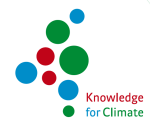 CARE – a research project of the research programme Knowledge for Climate (KfC) Theme 3
CARE – a research project of the research programme Knowledge for Climate (KfC) Theme 3
The central aim of this research programme is to assess the effects of climate change and adaptive strategies (i.e. sets of concrete adaptation measures) on agriculture, nature and other land-use functions in the rural landscape of the Netherlands. To achieve this aim, we will focus our research on four case study areas, using two climate scenario and one plausible socio-economic scenario. We will investigate the feasibility and effectiveness of adaptation strategies, in close cooperation with the stakeholders,. These strategies are meant to:
- Achieve a climate proof ecological structure that allows meeting high standard climate proof nature targets
- Give positive perspectives to agriculture, the drinking water sector and other land-use functions
- Optimize the overall functionality of the landscape, in terms of water management, biodiversity, agriculture, drinking water and recreation
We aim to predict the autonomous developments of hydrology, nature and agriculture under a range of future conditions. These conditions will comprise two contrasting climate scenarios Furthermore, the conditions are defined by a number of region-specific policy options concerning spatial planning, drainage, water prices, etc. These options will be defined together with the stakeholders. Policy recommendations will be formulated, following an integrated impact assessment of the autonomous adaptation strategies under the various policy options.
The work packages
The programme consists of three work packages (WP). The first WP (WP1), “Integration: multifunctional adaptation to climate change”, is the coordinating and integrating work package. In WP1 contacts with the regional case studies and the project scenario development will be coordinated. Future land use and management maps will be created using Agent-Based Modeling, whereby the actors are farmers and nature managers These land use and management maps will feed the remaining projects in WP2 and WP3.
WP2 is “Water and biodiversity in the future climate”. The impacts of climate change on the water balance, vegetation and population dynamics will be studied and adaptation strategies proposed. The spatial and abiotic requirements for adaptation measures will be quantified and attitudes of nature managers towards adaptation options will be explored. Questions answered are: Which adaptive measures in policy, nature and water management are feasible options to help eliminate potential climate change threats and create opportunities for nature development?
WP3 is “Drivers and consequences of adaptation by farmers”. The driving factors behind adaptation strategies for different farm types will be analyzed. Questions answered are: What are the consequences of agricultural adaptation strategies to climate, market and environment and how can ecosystem services provided by farmers contribute to water and nature adaptation?
The VU-university SPINlab is involved in WP1. The SPINlab will contribute to the programme by regionalize the Land Use Scanner for specific case study areas and implement GIS based process management tools to support the decision making process (eg Touch tables and tablets).
